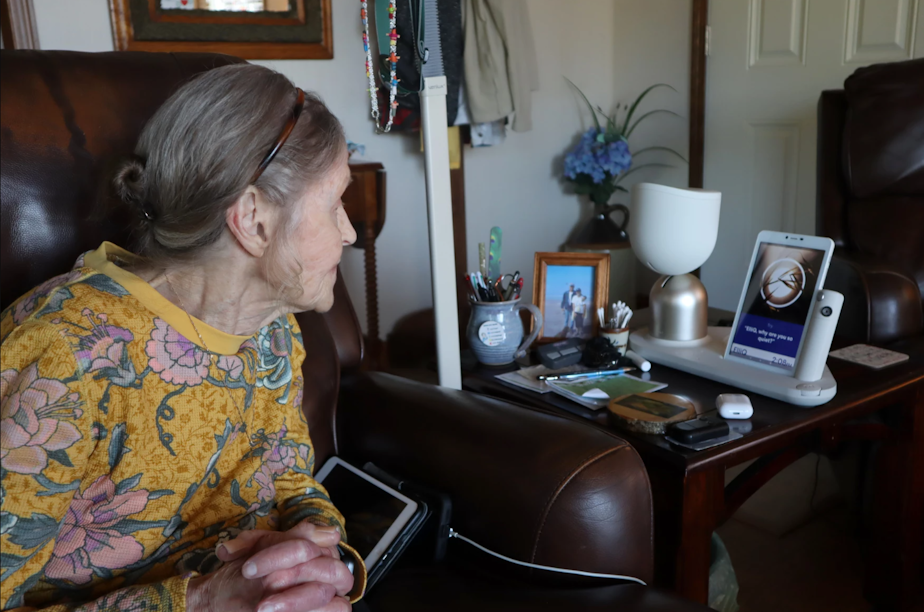Assistive tech for older adults is becoming increasingly automated. What are the privacy risks?

Over 30 years ago, LifeAlert was a mainstay on TV with the tagline "Help, I've fallen and I can't get up."
The system provided people with a wearable help button they could use when in trouble.
About a decade ago, gerontologist and University of Washington professor Clara Berridge saw a move away from this type of technology.
"We were seeing that shift from the personal emergency response system, where you actively push a button if you want help, to more passive systems," Berridge said. "And those were enabled by the explosion of affordable, tiny sensors."
These newer devices can help with small tasks like turning the lights on and off, locking doors, and managing medications. Some systems can automatically alert a care partner when someone falls out of bed.
Sponsored
But with this emerging technology has come new concerns about data privacy and user consent.
"There are dozens of ethical issues at different levels, from interpersonal, through much larger questions. And most have something to do with power," Berridge said.
The Washington Assistive Technology Act Program helps clients who have functional needs related to a disability or aging understand and access the many assistive technology options available to them. The program also offers guidance to clients about the issue of data privacy.
"By using some of these medication apps, for example, you may be allowing the maker to know what medications you're using,” said Alan Knue, executive director of the program. “And then from that information, they may be able to determine what sort of illnesses or medical issues you may have. So those are the sorts of things that we want to make sure that the person who's going to be monitored understands."
Right now, about one in six Americans is age 65 or older, according to a 2021 report published by the U.S. Department of Health and Human Services. By the year 2040, that population is expected to grow to roughly 1 in 5 people.
Sponsored
With an aging population, the conversation surrounding data privacy and assistive technology for older adults will continue to evolve.
Listen to Soundside’s full conversation with Clara Berridge by clicking the play icon at the top of this story.





